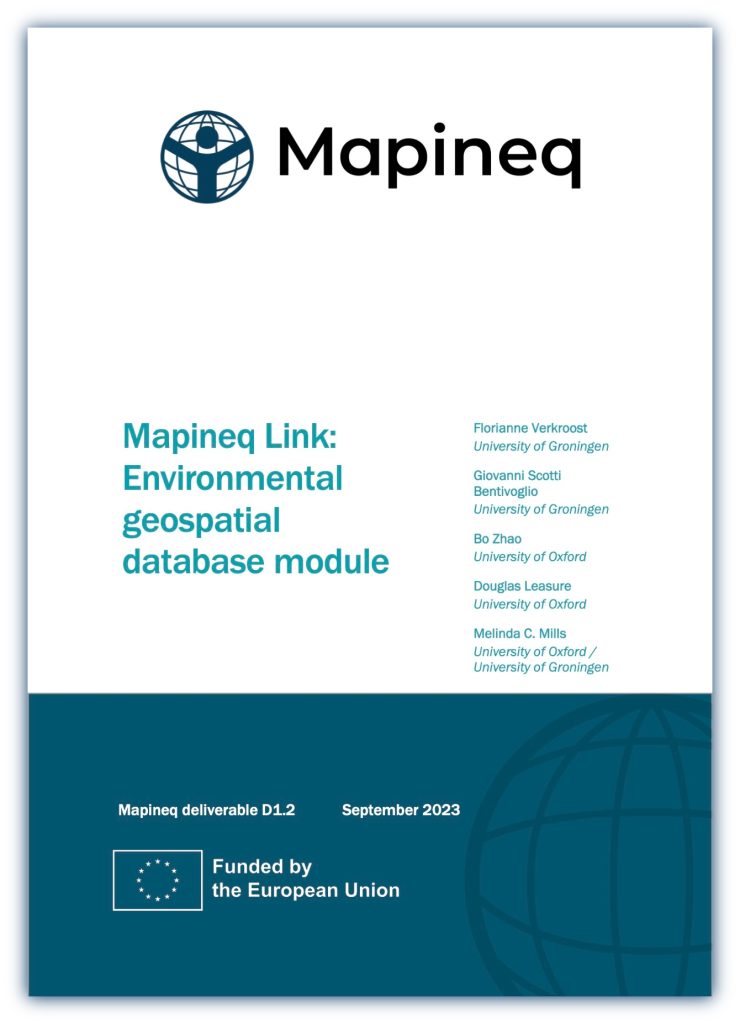Mapineq Link: Environmental geospatial database module
The Mapineq project focuses on the trends and drivers of intergenerational, educational, labour market and health inequalities across the life course, a core area of social, economic and policy research. A central aim of economic, social and health policy interventions is to diminish inequalities. In order to do so, we require an understanding of how inequalities may accumulate and how they are influenced by the natural environment (e.g., pollution, temperature) at the local, regional and national level. Environmental context can operate to aggravate or diminish inequalities. This report introduces Phase 2 of the Mapineq Link geospatial environmental database, a rich open-access database with API access that researchers can use to link a multitude of geo-linked policies to their own research projects.
By Florianne Verkroost, Giovanni Scotti Bentivoglio, Bo Zhao, Douglas Leasure & Melinda Mills

Mapineq Link improves existing databases by: (1) harmonising and blending multiple sources, (2) including geospatial indicators at the neighbourhood, city or regional level, (3) including geo-coded data to link to individual data; (4) better and broader subject coverage; (5) objective information; (6) bottom-up use of diverse data sources; (7) structural, socioeconomic, policy and environmental data; and, (8) an API to link data.

Our environmental database section contains four data geo-spatial types: (1) point, (2) line, (3) raster, and (4) polygon across five thematic modules: (1) earth and natural landscape, (2) built landscape, (3) administrative boundaries, (4) climate and environment, and (5) socio-economic indicators.

Mapineq Link has an API and online dashboard which allows: (1) public and policy-makers, accessible material, (2) researchers to query the database, (3) programmers and data scientists to retrieve data for specific geolocations or bespoke regions; (4) external web developers to easily integrate Mapineq data into their own interactive web applications. The Mapineq Link team is dedicated to FAIR principles to make our innovations Findable, Accessible, Interoperable, and Reusable.

